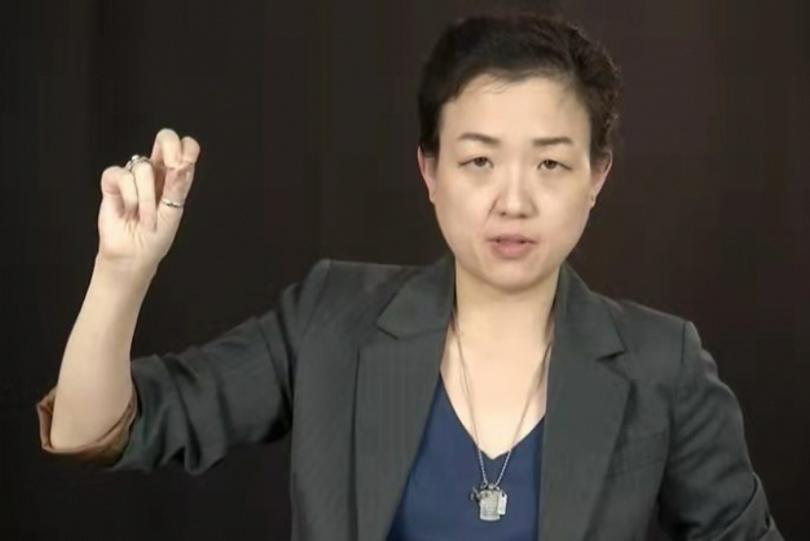At the virtual closing session of the Chinese Mission Convention Global 2021 on December 29, Reverend Lisa Pak encouraged the Chinese diaspora communities to embrace their significant role in the Great Commission.
As a second generation Korean-Canadian, Rev. Lisa Pak, the Global Strategist for Finishing The Task (FTT), a movement of 1,600 churches and organizations who have come together to reach the Unengaged, Unreached People Groups (UUPGs), has 14 years of pastoral ministry and church experience in South Korea, Singapore, and Canada with a particular focus amongst the Korean Diaspora community and a passion about diaspora communities and mobilizing the young generation for the gospel.
Rev. Lisa Pak opened her session by reviewing two passages in the Bible.
Through Matthew 28: 18-20, Pak pointed out two essential foundations for the Great Commission: the assurance of Christ’s power and authority, as well as the promise of His Presence, even to the end of the age. Reviewing Ephesians 4:11-13, she reminded listeners that the Church, as the Body of Christ, is equipped with all the spiritual gifts necessary to do His work until completion through church members.
From there she threw in the key question, “how can the Chinese Diaspora Churches and the rising generations of the CMC bring all that considerable strength and the gifts that God has deposited into you for the purposes of the reaching the least and the last?”
The Great Commission is given to the whole Church, that is, all believers. Pak claimed that the sovereign God never leaves his workers lacking when he gives a commission. The much-needed spiritual gifts, as mentioned in Ephesians, are given to different individuals in the church. Therefore, no single individual, culture or generation can fulfill the Great Commission alone.
“In today’s world, the global Church must find ways to collaborate. And the key bridge-building community is the Diaspora Churches”, stated Rev. Pak.
She emphasized that the diaspora Christians have a unique role to play in the Great Commission. Under God’s sovereign plan, the diaspora Christians, who are able to link the home culture with the adopted culture by use of extraordinary cross-cultural and linguistic skills, are uniquely and advantageously positioned in reaching specific groups.
Admitted that diversity and differences could make collaboration difficult, she urged diaspora Christians to “consider everything that’s given to them as an advantage”.
“People—in all our flawed humanity—must learn to collaborate, work together and serve each other not in spite of the cultural, worldview, linguistic difference but precisely because of those differences - those differences are the strength of the Church,” she added.
Rev. Pak said, “The older generations of the diaspora churches need to make intentional space and give leadership opportunities to their rising generations.”
Rev. Pak gave two examples of generational leadership transitions in the Bible. For King David and King Solomon, the former was not the chosen one to build the Temple, yet leveraged all his resources, wealth and efforts to make way for Solomon. Pak reminded the participants to notice David’s attitude: knowing that his son Solomon was young and inexperienced, King David did not condescend him but upheld Solomon in his prayers and put his trust in God.
Mordecai and Esther’s story set an example for cross-generational collaboration. She pointed out that Mordecai, the father-like cousin of Esther, provided Esther with perspective, through the insightful reminder that God might have made Esther queen for this moment. On the other end, Esther took over the responsibility from Mordecai, took charge of the rest of the mission, and handled it well in the Persian court.
Addressing the young diaspora leaders, the experienced pastor said they “need to be strong in prayer, humble in leadership, and embrace our bi-cultural/bi-lingual identities.”
“Praying is one of the spiritual disciplines that really unites people across diverse cultures and across generations”, said Pak. Through prayers God gives same vision to his people across generations, leading them in the Great Commission, which in itself is a task passed down from one generation to another.
Pak also warned young leaders to practice humility and beware of the “Rehoboam Syndrome”. Solomon’s son Rehoboam asked the elders for advice as an honoring gesture but failed to exercise it.
“Honor is not just lip-service and ‘going through the obligatory motions’; it’s a heart posture towards the elders, parents, leaders that went before us and did their best to grow and nurture us. It is arrogant to think that we somehow got ourselves to where we’re at all by ourselves.”
In terms of the identity crisis among the second-generation diaspora leaders, the second-generation Korean-Canadian opposed the notion that one has to choose between identities of their ethnic heritage and the adopted home.
“Reality is that you are fully both - fully enculturated in the cultural context of the larger community, and fully part of the cultural heritage of your generational lineage. You must embrace your third cultural identity. This is the key to leveraging your intuitive knowledge and experience for God’s kingdom in the 21st century.”
Rev. Pak recommended two things to the current diaspora church leaders, “First, Reach out and continue reaching out to believers of other cultures and start layering those conversations and strategic relationships to build up the Church, the global Body of Christ.”
Second, “reach out and continue reaching out to the rising leaders of your own diaspora communities and listen, support, and encourage them.”
Pak concluded, “The rising generation of the diaspora communities have a significant role in the spreading of the Good News to all nations in this century, in the coming years. God had planted the seed for today’s generation many generations ago for such a time as this.”












